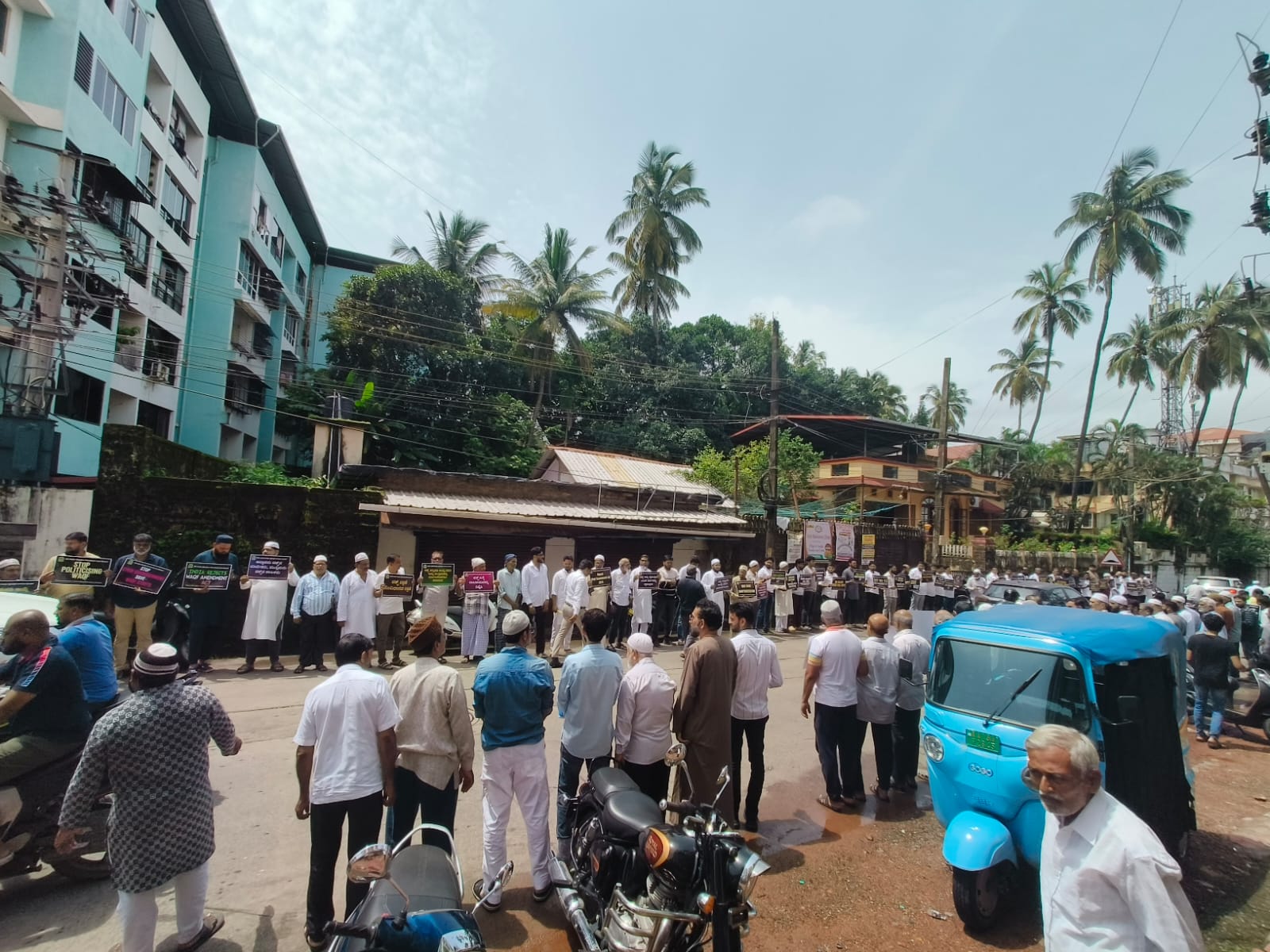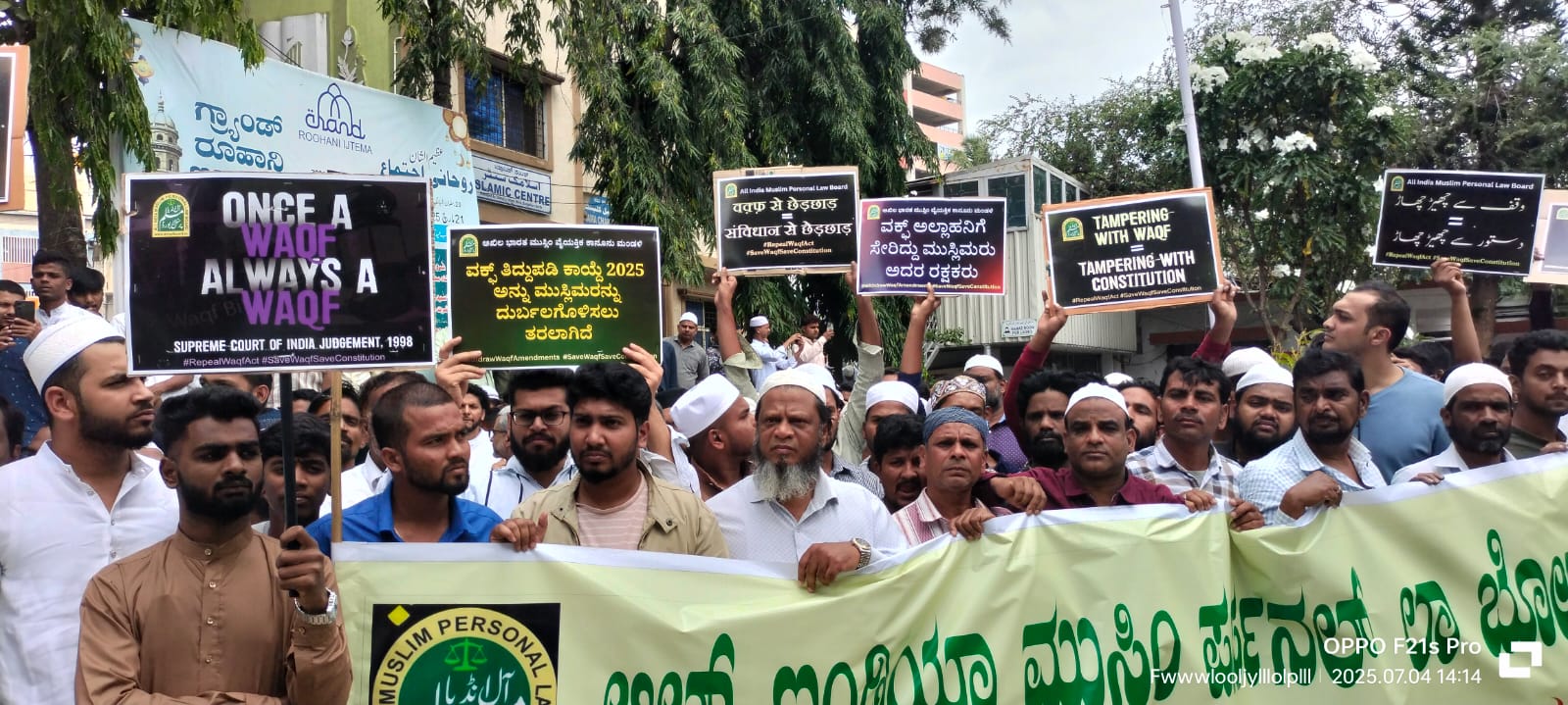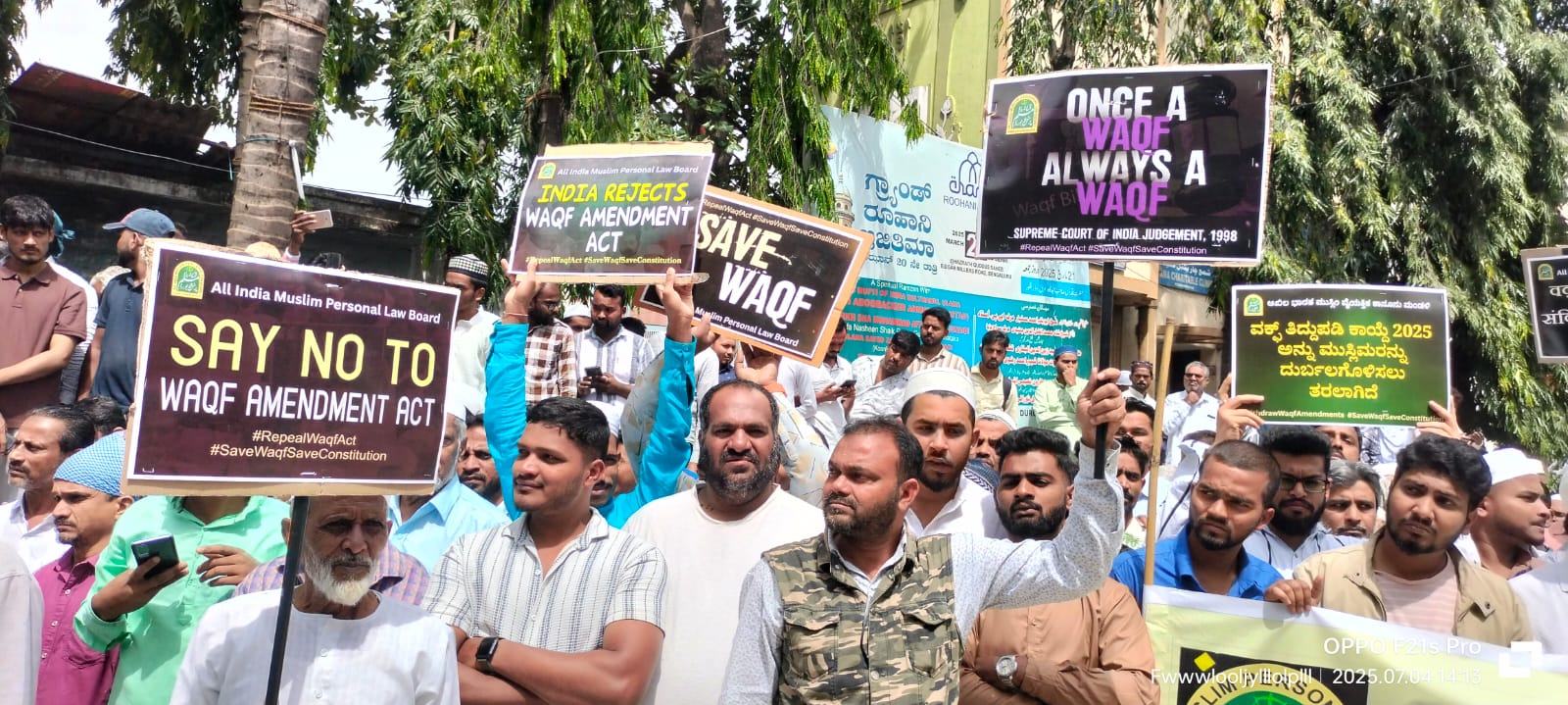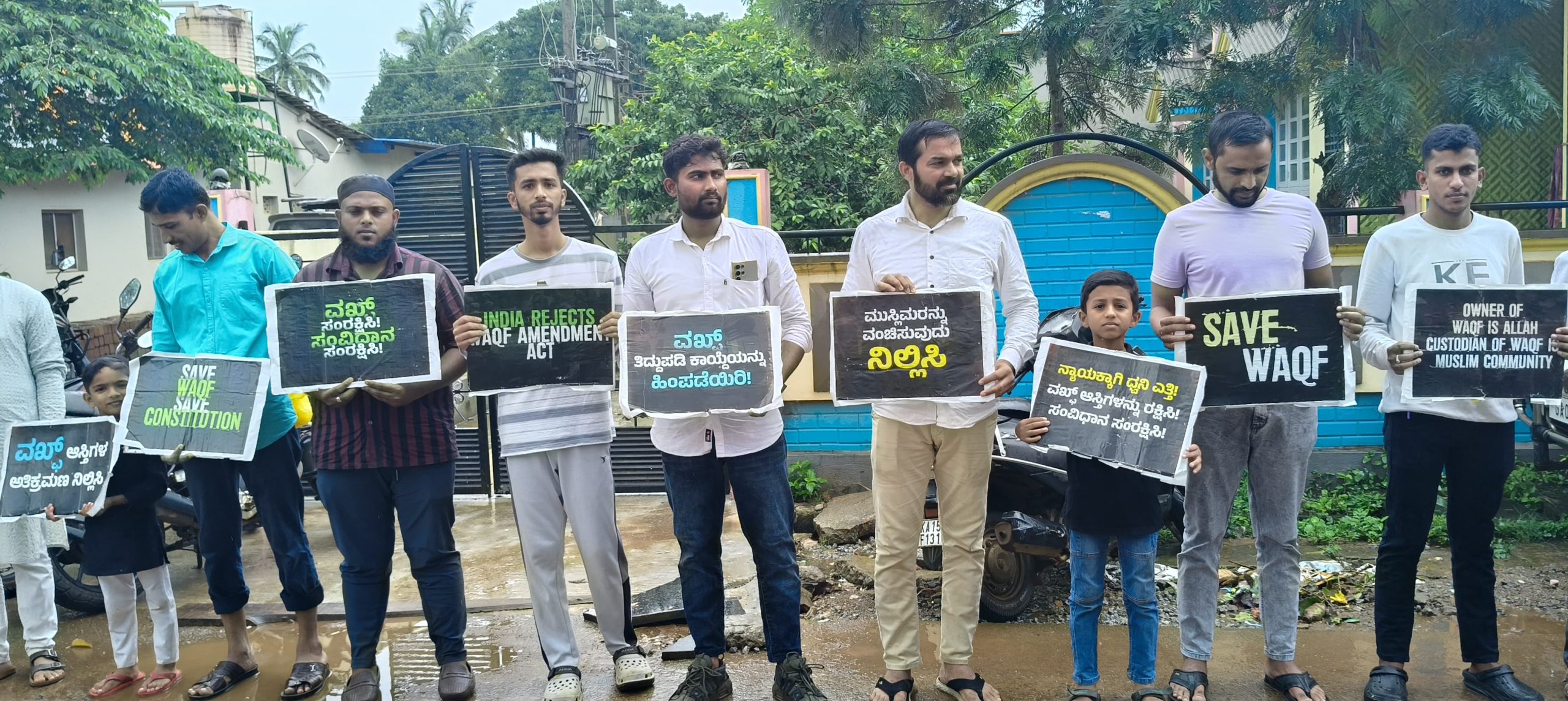Week After Week, Voice After Voice – Karnataka’s Protest Against Injustice Grows Stronger
– Mohammed Talha Siddi Bapa
Bengaluru: In a powerful continuation of the ongoing nationwide dissent since the Waqf (Amendment) Act 2025 was enacted, thousands of Muslims across Karnataka formed human chains outside mosques after Juma (Friday) prayers on July 4. This coordinated act of peaceful resistance, stretching from remote villages to major urban centres, is part of a sustained protest led by the All India Muslim Personal Law Board (AIMPLB).
Despite persistent rain in several regions, protestors stood firm, forming symbolic human chains even within mosque premises when outdoor gatherings were hindered by the weather – a testament to both their resolve and discipline.
Social media platforms were flooded with striking images and short videos from across the state, as worshippers shared reels and photos of human chain formations outside their respective Juma Masjids.
 These visuals not only captured the unity and discipline of the protests but also helped amplify the movement’s message far beyond the immediate gatherings.
These visuals not only captured the unity and discipline of the protests but also helped amplify the movement’s message far beyond the immediate gatherings.
Restrictions in Bengaluru
In parts of Bengaluru, authorities imposed restrictions on the formation of human chains. In Ex-Servicemen Colony, Masjid Committee member Saad bin Waqas reported that the police issued verbal warnings not to proceed with the protest. Nevertheless, the symbolic action continued wherever possible.
Strong Opposition to the Amendment
The Waqf (Amendment) Act 2025 has sparked deep concern and discontent among Muslims across India. Critics argue that the law undermines the autonomy of State Waqf Boards, expands bureaucratic interference, and endangers Waqf properties historically dedicated to religious, charitable, and public welfare purposes.
 “This agitation didn’t begin today,” said Dr. Mohammed Sa’ad Belgami, President of Jamaat-e-Islami Hind, Karnataka. “A few days ago, we organised the Batti Gul Tahreek across India. Whether small or large, protests are being held continuously to send a clear message to the government: this law is unacceptable.”
“This agitation didn’t begin today,” said Dr. Mohammed Sa’ad Belgami, President of Jamaat-e-Islami Hind, Karnataka. “A few days ago, we organised the Batti Gul Tahreek across India. Whether small or large, protests are being held continuously to send a clear message to the government: this law is unacceptable.”
Dr. Belgami also urged the media to cover the protests fairly and help amplify the community’s concerns.
 Mohammed Yousuf Kanni, Secretary of JIH Karnataka, emphasised the organisation’s outreach to civil society. “We’re working with people of other faiths, NGOs, and social activists to educate them on the role of Waqf in society. Many have expressed their support and committed to standing with us.”
Mohammed Yousuf Kanni, Secretary of JIH Karnataka, emphasised the organisation’s outreach to civil society. “We’re working with people of other faiths, NGOs, and social activists to educate them on the role of Waqf in society. Many have expressed their support and committed to standing with us.”
Not Just a Community Issue
The AIMPLB, which issued the protest call, reiterated its commitment to constitutional and peaceful means of resistance. “This is not just about community property – it’s about the fundamental rights of religious and cultural minorities,” said Maulana Maqsood Imran Rashadi in Bengaluru. “We are using every platform available to us – public education, protests, and legal channels – to express our opposition to this unjust and unacceptable law.”
Educating the Broader Society
Alongside these protests, efforts are underway to raise public awareness about the concept and historical importance of Waqf in India. Organisations are distributing pamphlets, holding community talks, and using social media to inform people – especially non-Muslims – about how Waqf has long served both religious institutions and broader public welfare.
 “Many non-Muslims don’t even know what Waqf is,” said Rahila Sultana, a social worker from Hubballi. “That lack of awareness is being exploited to push policies that could damage our cultural and charitable heritage.”
“Many non-Muslims don’t even know what Waqf is,” said Rahila Sultana, a social worker from Hubballi. “That lack of awareness is being exploited to push policies that could damage our cultural and charitable heritage.”
A Civil Rights Concern
While this movement is rooted in the Muslim community, it is increasingly being recognised as part of a larger civil rights issue. Constitutional experts and human rights groups have begun voicing their concern over what they see as a growing pattern of state encroachment on minority rights.
Also Read: Radiance Viewsweekly & Dawat Weekly Combo Subscription Offer
The scale and reach of the Karnataka protest – marked by grassroots mobilisation and statewide participation – underscore the seriousness of the issue. With legal challenges and public engagement campaigns on the horizon, the protest against the Waqf Amendment is shaping up to be a defining moment in India’s ongoing debate over minority rights and secular governance.
This is not an isolated agitation. It is part of a sustained and evolving resistance that will continue until the concerns of the community are addressed – constitutionally, peacefully, and publicly.



